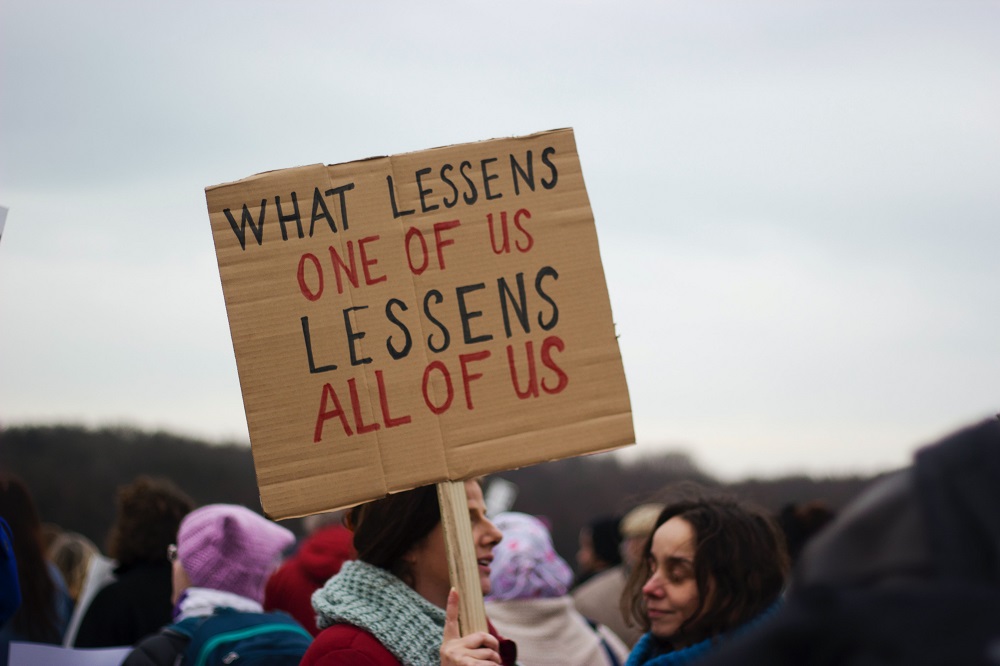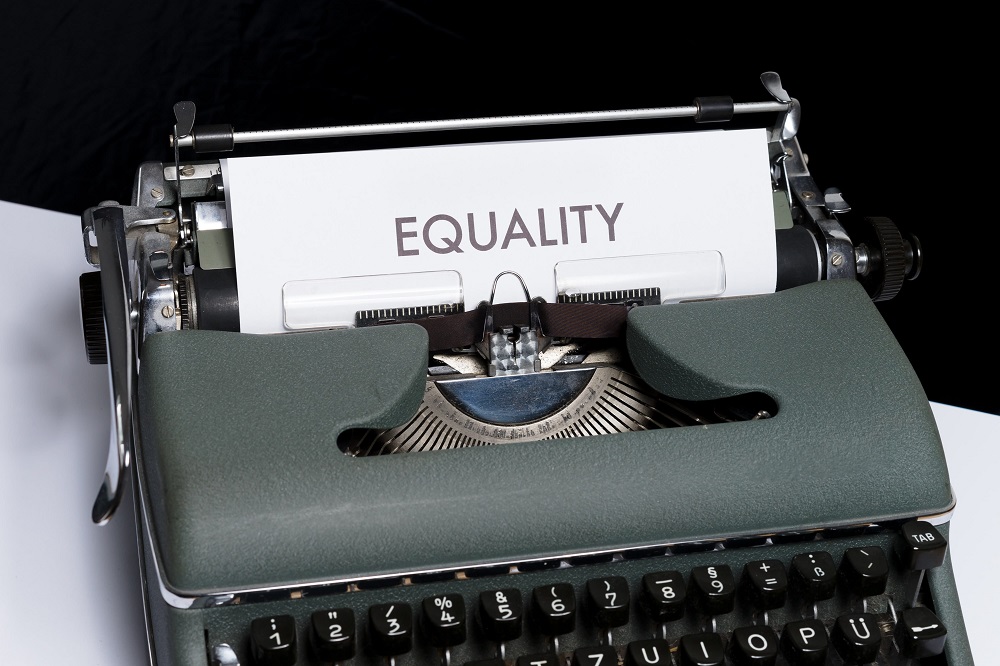By Amy Fournier
Posted on September 10, 2021
TW: This article contains discussions of violence, domestic abuse, sexual assault

Introduction
“In the end, we will remember not the words of our enemies, but the silence of our friends.” -Martin Luther King, Jr.
Language is a powerful device that shapes our reality, and how we communicate with others. As a result, it is important to study the origins of language and how some languages support archaic and unfair systems such as sexism.
Australian feminist writer, Dale Spender, describes language as one of the many things dominated by the patriarchal society in the introduction of her book Man Made Language:
“Language is not neutral. It is not merely a vehicle which carries ideas. It is itself a shaper of ideas.”
Active versus passive use of language and gender-based violence
When dealing with violence against women, language often places an emphasis on women, making them the active subject, while making men passive or removed from the picture which also perpetuates sexism.
In a 2012 Ted Talk by Dr. Jackman Katz, he describes the way that society often classifies gender-based violence as “women’s issues,” rather than “men’s issues.” Katz believes that the way that people use passive language is a cause for concern, and takes away the accountability that men need to have.
For example, the sentences below describe the same situation but in a different sentence structure.
Susan was beaten by Fred. This is a passive sentence that shifts the focus away from Fred and places the emphasis on Susan.
Susan was beaten. Now Fred is completely erased from the picture, and Susan is the only subject.
Susan was a battered woman. Finally, in this sentence, Susan is identified by the abuse that was caused by Fred.
Fred beat Susan. This is an active sentence with Fred being the subject followed by the verb, or action that he has done which is beating Susan.
Overall, it can be seen that the way language is used needs to change from being passive to active, holding the perpetrator accountable, rather than making them invisible.
Victim-blaming and “kill the messenger” mentality
Victim-blaming is the act of blaming the person who had the act done to them, rather than the perpetrator (the person who did the act). Using passive sentences to describe assault is a form of victim-blaming. As well, interrogating the person who was assaulted by asking questions such as “what they were wearing” or “why they were outside” also places the blame on the victim.
According to Katz, “our cognitive structure is set up to blame victims.” Oftentimes, when women speak up for themselves and other women they get called nasty names such as “man-hater, male basher, feminazi.”
The name-calling of women who take chances and speak out against pressing issues such as domestic abuse and violence is a reflection of a patriarchal society that aims to protect men. Men often fear losing their power, even if the intention of women is to create a harmonious society for everybody.
Erotic versus violent language in sexual assault trials
Eroticized language is often used in sexual assault trials to minimize the actions of the perpetrator. For example, describing sexual assault by saying “he kissed, hugged, caressed, or had sex with her,” creates an intimate and non-threatening scene.
According to Janet Bavelas and Linda Cook’s 2001 research article, “Is it Sex or Assault? Erotic Versus Violent Langauge in Sexual Assault Trial Judgements,” they state that using eroticized language to describe sexual assault “actively misleads and misdirects.” It brings the acts “…into the range of everyday human behaviour. Thus, they can be seen as “sexual actions that were simply somewhat inappropriate.”
Instead of using eroticized language to describe assault, it is more useful to use straightforward, active sentences about the events that took place.
Bystander approach
Anyone who is not a perpetrator of violence is a bystander of it. Chances are you know someone who has been a victim of violence, whether that be a friend, colleague, or coworker, and perhaps you may know a perpetrator as well.
The key to positive societal change is not to remain silent in the face of abuse. If someone says something sexist, racist, harassing, it is important to challenge the person who is perpetuating violence with their language. Silence is passive and a form of complicity in violence against women.
Men interrupting other men and holding them accountable for their words and actions are the key to progress, even if it is uncomfortable at first to do so.
Leadership and creating a more equitable society

If a person of power makes a homophobic, sexist or racist comment, they are being a bad leader. Leadership training that includes deconstructing the way language is used to sustain gender-based violence is critical in order to combat violence against women and create equity.
Overall, language is a massive part of society, and the way in which we use it to communicate is important to be aware of. It is never too late to start unlearning patterns of behaviour that perpetuate sexism and racism.

